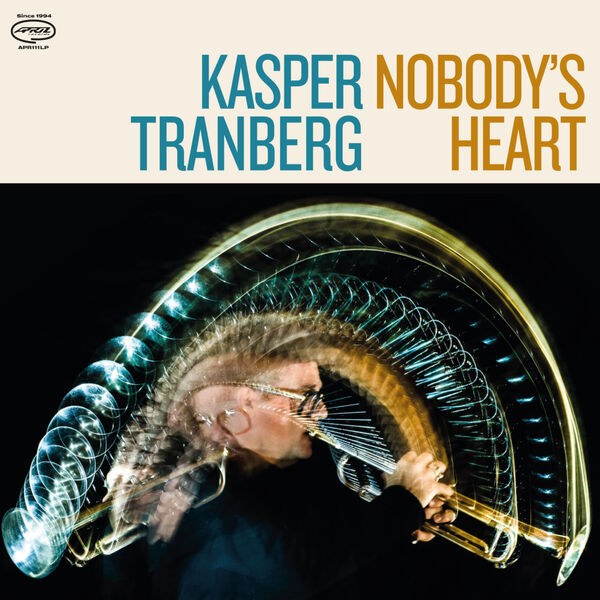Danish trumpeter Kasper Tranberg is keen for you to consider his three-piece ensemble less as a chordless trio, and as more of a ‘terzet’ – that is, a composition for three voices. This triangular relationship of trumpet, bass and drums has been a key arrangement of Tranberg’s since the early nineties, one which he believes is the ideal candidate for embellishing tunes with purpose and feel. It is this ethos that he returns to on ‘Nobody’s Heart’, released this week on April Records.

Brimming with heartfelt ideas, this is an album of impeccable feeling. The record begins as a delicate conversation that, once awakened, teams with life. Tunes commence with the most precise of details, the ensemble warming up with as little as a cymbal splash, or the downward bass glissando that kicks the whole thing off on ‘Little Abi’. With the absence of piano or guitar, the sonic duties are left to bassist and cellist Nils Davidsen to join in the dots, before Tranberg intricately colours them in. The feeling of weightlessness cast by the generous space provides the rhythm section with a more dedicated task of accompaniment, which they execute perhaps more conscientiously than if they were locked into a more conventional groove. This is apparent on tunes like ‘Gettin’ On Way’, in which drummer Frands Rifbjerg supplements the ins-and-outs of his leader’s phrasing whilst Davidsen walks on, slyly. The bassist's contrapuntal offerings on ‘My Bad’ once again highlight the ensemble’s overall understanding that it is not always necessary to fill the space, so long as you make its contours known.
Rich and clear, not one overtone is spared in the immediacy of the musicians’ presence on this recording, which took place within the vibrant acoustic of Copenhagen’s Rhythmic Music Conservatory in 2022. Bowed passages on the title track – Rodgers & Hart’s, ‘Nobody’s Heart’ – serve as fertile ground, out of which Tranberg's melodies blossom like dubious wildflowers, waiting to be picked. Album highlight, Paul Motian’s ‘Circle Dance’ is a carousel that loops beneath Tranberg’s proud announcements. He is a player that shines at the chance to flourish, but remains quick to exercise restraint before getting carried away lest he sacrifice the team's efforts in forming their immaculate impressions of blueness.
In retrospect, the musical scale of this album can be said to surpass the ‘runaway rhythms and restorative melodies’ mentioned by Tranberg in the liner notes. Under the expert jurisdiction of their leader, the group easily applies an inventive bend to their emotional range whilst they remain emotionally aware of that same inventiveness. The result is utterly powerful and convincing.






 Post Options
Post Options
 Thanks(0)
Thanks(0)
 Quote
Quote  Reply
Reply
 Topic: recording of the week - Kasper Tranberg
Topic: recording of the week - Kasper Tranberg

